 W
WSir Ralph Abercromby was a Scottish soldier and politician. He twice served as MP for Clackmannanshire, rose to the rank of lieutenant-general in the British Army, was appointed Governor of Trinidad, served as Commander-in-Chief, Ireland, and was noted for his services during the French Revolutionary Wars.
 W
WBrigadier-General Sir William Alexander was a British Army officer, civil servant, and Scottish Unionist Party politician. He was the Member of Parliament (MP) for Glasgow Central between the general elections of 1923 to 1945, when he stood down.
 W
WGeneral Sir Archibald Alison, 2nd Baronet was a Scottish soldier who achieved high office in the British Army in the 1880s. He was a descendant of the Alison family presented by Francis Galton in Hereditary Genius (1869) as an example of genius inherited over several generations.
 W
WArchibald Campbell, 1st Marquess of Argyll, 8th Earl of Argyll, Chief of Clan Campbell was a Scottish nobleman, politician, and peer. The de facto head of Scotland's government during most of the conflict of the 1640s and 50s known as the Wars of the Three Kingdoms, he was a major figure in the Covenanter movement that fought for the maintenance of the Presbyterian religion against the Stuart monarchy's attempts to impose episcopacy. He is often remembered as the principal opponent of the royalist general James Graham, 1st Marquess of Montrose.
 W
WLieutenant General Sir William Babtie, was a Scottish recipient of the Victoria Cross, the highest and most prestigious award for gallantry in the face of the enemy that can be awarded to British and Commonwealth armed forces. His Victoria Cross is displayed at the Army Medical Services Museum in Aldershot.
 W
WMajor General Edward Braddock was a British officer and commander-in-chief for the Thirteen Colonies during the actions at the start of the French and Indian War (1754–1763), which is also known in Europe and Canada as the Seven Years' War (1756–1763). He is generally best remembered for his command of a disastrous expedition against the French-occupied Ohio River Valley in 1755, in which he lost his life.
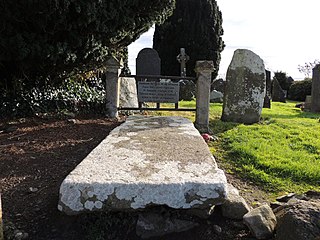 W
WEdward Bruce, Earl of Carrick, was a younger brother of Robert the Bruce, King of Scots. He supported his brother in the 1306-1314 struggle for the Scottish crown, then pursued his own claims in Ireland. Proclaimed High King of Ireland in 1315 and crowned in 1316, he was eventually defeated and killed by Anglo-Irish forces of the Lordship of Ireland at the Battle of Faughart in County Louth.
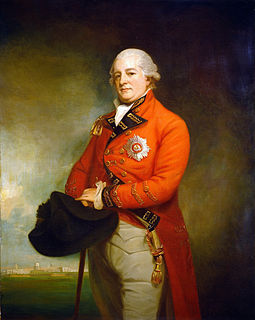 W
WSir Archibald Campbell KB served as governor of Jamaica, Madras, and Georgia. He was a major Scottish landowner, Heritable Usher of the White Rod for Scotland and politician who sat in the House of Commons between 1774 and 1791.
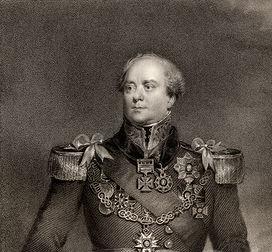 W
WGeneral Sir Archibald Campbell, 1st Baronet was a Scottish soldier who served as an officer in the British Army. From 1824 to 1826, Gen. Campbell commanded the British forces in the First Anglo-Burmese War, the longest and most expensive war in British Indian history, that gave the British control of Assam, Manipur, Cachar, Jaintia, Arakan and Tenasserim. He became known as the "Hero of Ava". From 1831 to 1837, he was the administrator of the colony of New Brunswick, Canada. The Canadian city of Campbellton in the province of New Brunswick was named in his honour.
 W
WLieutenant General Sir James Campbell, 1st Baronet, 3rd of Inverneill House was a Scottish soldier, politician and colonial administrator. He was Governor and Commander-in-Chief of the Ionian Islands, Adjutant-General to the British Forces and Heritable Usher of the White Rod for Scotland. He is buried at Westminster Abbey.
 W
WMajor General George Tupper Campbell Carter-Campbell, was a senior British Army officer who served in the Second Boer War and the First World War.
 W
WGeneral Sir Alexander Frank Philip Christison, 4th Baronet, was a British Army officer who served with distinction during the world wars. After service as a junior officer on the Western Front in the First World War, he later distinguished himself during the Second World War, where he commanded XV Indian Corps, part of Sir William Slim's Fourteenth Army, during the Burma Campaign. He then went on to have a successful postwar career, and eventually, in late 1993, lived to the age of 100.
 W
WSir Thomas Dalyell of The Binns, 1st Baronet (1615–1685) was a Scottish Royalist general in the Wars of the Three Kingdoms, also known by the soubriquets "Bluidy Tam" and "The Muscovite De'il".
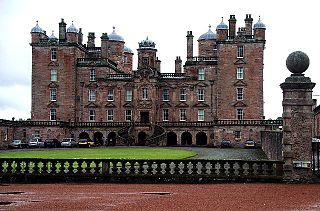 W
WLieutenant-General James Douglas (1645–1691), younger brother of the Duke of Queensberry, was a Scottish military officer.
 W
WSir James Douglas was a Scottish knight and feudal lord. He was one of the chief commanders during the Wars of Scottish Independence.
 W
WMajor-General George Douglas, Earl of Dumbarton and Lord of Ettrick KT was a Scottish professional soldier, who spent much of his career in the service of Louis XIV. In 1678, he returned to England; as a Catholic, he was a trusted servant of James II & VI and went into exile with him after the 1688 Glorious Revolution. He died at the palace of St Germain-en-Laye in March, 1692.
 W
WJohn Graham of Claverhouse, 1st Viscount Dundee, known as the 7th Laird of Claverhouse until raised to the viscountcy in 1688, was a Scottish soldier and nobleman, a Tory and an Episcopalian. Claverhouse was responsible for policing south-west Scotland during and after the religious unrest and rebellion of the 1670s/80s.
 W
WPatrick Ruthven, 1st Earl of Forth and 1st Earl of Brentford was a Scottish nobleman, general, and diplomat.
 W
WJohn Gordon of Glenbucket was a Scottish Jacobite, or supporter of the claim of the House of Stuart to the British throne. Laird of a minor estate in Aberdeenshire, he fought in several successive Jacobite risings. Following the failure of the 1745 rising, in which he served with the rank of Major-General, he escaped to Norway before settling in France, where he died in 1750.
 W
WField Marshal Douglas Haig, 1st Earl Haig, was a senior officer of the British Army. During the First World War, he commanded the British Expeditionary Force (BEF) on the Western Front from late 1915 until the end of the war. He was commander during the Battle of the Somme, the Battle of Arras, the Third Battle of Ypres (Passchendaele), the German Spring Offensive, and the final Hundred Days Offensive.
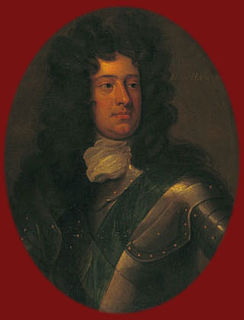 W
WLieutenant General James Hamilton, 4th Duke of Hamilton and 1st Duke of Brandon was a Scottish nobleman, the Premier Peer of Scotland, and Keeper of the Palace of Holyroodhouse. He was a Master of the Great Wardrobe, Master-General of the Ordnance, Ambassador, and Colonel-in-Chief of his regiment. Hamilton was a major investor in the failed Darien Scheme, which cost many of Scotland's ruling class their fortunes, and he played a leading role in the events leading up to the Act of Union in 1707. He died on 15 November 1712 as the result of a celebrated duel in Hyde Park, Westminster, with Charles Mohun, 4th Baron Mohun, over a disputed inheritance.
 W
WBrigadier-General Lord John Hay was the second son of John Hay, 2nd Marquess of Tweeddale. He served in the British Army under the Duke of Marlborough.
 W
WGeneral Henry Sinclair Horne, 1st Baron Horne, was a military officer in the British Army, most notable for his generalship during the First World War. He was the only British artillery officer to command an army in the war.
 W
WDavid Leslie, 1st Lord Newark was a Scottish-born cavalry officer. He fought for the Swedish army of Gustavus Adolphus during the Thirty Years' War. He had entered Swedish service in 1630, serving as a captain in the regiment of Alexander Leslie. He returned to Scotland just before the end of the Bishops' War, and participated in the English Civil War and Scottish Civil Wars.
 W
WAlexander Leslie, 1st Earl of Leven was a Scottish soldier in Swedish and Scottish service. Born illegitimate and raised as a foster child, he subsequently advanced to the rank of a Swedish Field Marshal, and in Scotland became Lord General in command of the Army of the Covenanters, privy councillor, captain of Edinburgh Castle, Lord Balgonie and Earl of Leven. In England he commanded the Army of the Solemn League and Covenant and was senior commander of the Army of Both Kingdoms (1642–1647).
 W
WJames Lumsden (1598–1660) was a Scottish soldier who served in the Swedish army of Gustavus Adolphus during the Thirty Years' War, and subsequently commanded Scottish Covenanter armies.
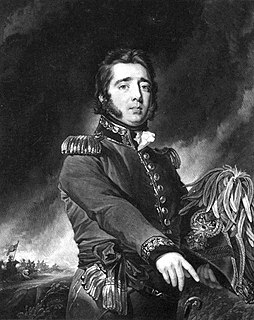 W
WGeneral Gregor MacGregor was a Scottish soldier, adventurer, and confidence trickster who attempted from 1821 to 1837 to draw British and French investors and settlers to "Poyais", a fictional Central American territory that he claimed to rule as "Cazique". Hundreds invested their savings in supposed Poyaisian government bonds and land certificates, while about 250 emigrated to MacGregor's invented country in 1822–23 to find only an untouched jungle; more than half of them died. MacGregor's Poyais scheme has been called one of the most brazen confidence tricks in history.
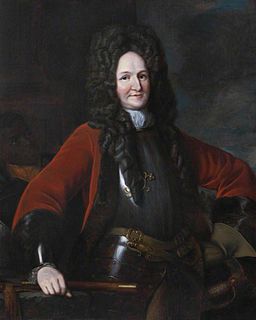 W
WHugh Mackay was a Scottish military officer who settled in the Netherlands, and spent most of his career in the service of William of Orange.
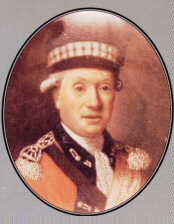 W
WAllan Maclean of Torloisk (1725–1798) was a Jacobite who became a British Army general. He was born on the Isle of Mull, Scotland. He is best known for leading the 84th Regiment of Foot in the Battle of Quebec.
 W
WMajor-General Sir Fitzroy Hew Royle Maclean, 1st Baronet, was a Scottish soldier, writer and politician. He was a Unionist Member of Parliament (MP) from 1941 to 1974 and was one of only two men who during the Second World War enlisted in the British Army as a private and rose to the rank of brigadier, the other being future fellow Conservative MP Enoch Powell.
 W
WGeneral Sir Gordon Holmes Alexander MacMillan of MacMillan and Knap, was a professional soldier who rose to become a general in the British Army. As a young officer during the First World War, he displayed outstanding bravery and was awarded a Military Cross and two Bars. At the age of 19 and while still a second lieutenant, he was appointed acting adjutant of the 2nd Battalion, Argyll and Sutherland Highlanders. Between the World Wars, MacMillan remained in the army, occupying posts of increasing seniority. He married Marian Blakiston Houston in 1929, and they had one daughter and four sons.
 W
WAlexander Stewart was a Scottish nobleman, Earl of Mar from 1404. He acquired the earldom through marriage to the hereditary countess, and successfully ruled the northern part of Scotland.
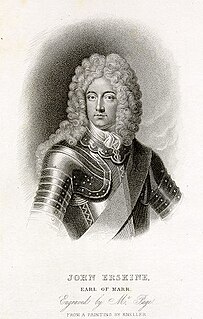 W
WJohn Erskine, Earl of Mar, KT was a Scottish Jacobite who was the eldest son of Charles, Earl of Mar, from whom he inherited estates that were heavily loaded with debt. He was the 23rd Earl of Mar in the first creation of the earldom. He was also the sixth earl in the seventh creation. He was nicknamed Bobbing John, for his tendency to shift back and forth from faction to faction, whether from Tory to Whig or Hanoverian to Jacobite. Deprived of office by the new king in 1714, Mar raised the standard of rebellion against the Hanoverians; at the battle of Sheriffmuir in November 1715, Mar's forces outnumbered those of his opponent, but victory eluded him. At Fetteresso his cause was lost, and Mar fled to France, where he would spend the remainder of his life. The parliament passed a Writ of Attainder for treason against Mar in 1716 as punishment for his disloyalty, which was not lifted until 1824. He died in 1732.
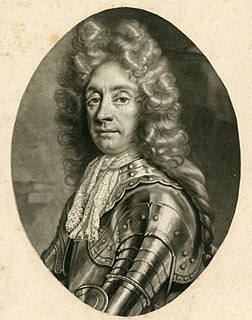 W
WThomas Maxwell was a Scottish professional soldier.
 W
WHugh Mercer was a Scottish soldier and physician. He initially served with the Jacobite forces of Bonnie Prince Charlie, and with the British forces during the Seven Years' War, but later became a brigadier general in the Continental Army and a close friend to George Washington. Mercer died as a result of his wounds received at the Battle of Princeton and became a fallen hero as well as a rallying symbol of the American Revolution.
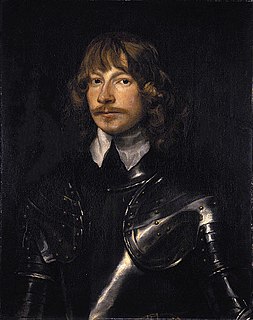 W
WJames Graham, 1st Marquess of Montrose was a Scottish nobleman, poet and soldier, lord lieutenant and later viceroy and captain general of Scotland. Montrose initially joined the Covenanters in the Wars of the Three Kingdoms, but subsequently supported King Charles I as the English Civil War developed. From 1644 to 1646, and again in 1650, he fought in the civil war in Scotland on behalf of the King. He is referred to as the Great Montrose.
 W
WMajor-General Sir Thomas Munro KCB was a Scottish soldier and colonial administrator. He served as an East India Company Army officer and statesman, in addition to also being the governor of Madras Presidency.
 W
WLord George Murray (1694-1760), sixth son of John Murray, 1st Duke of Atholl, was a Scottish nobleman and soldier who took part in the Jacobite rebellions of 1715, 1719, and played a senior role in that of 1745.
 W
WField Marshal George Hamilton, 1st Earl of Orkney, KT, styled Lord George Hamilton from 1666 to 1696, was a British soldier and Scottish nobleman and the first British Army officer to be promoted to the rank of field marshal. After commanding a regiment for the cause of William of Orange during the Williamite War in Ireland, he commanded a regiment in the Low Countries during the Nine Years' War. He then led the final assault at the Battle of Blenheim attacking the village churchyard with eight battalions of men and then receiving the surrender of its French defenders during the War of the Spanish Succession. He also led the charge of fifteen infantry battalions in an extremely bloody assault on the French entrenchments at the Battle of Malplaquet. In later life he became a Lord of the Bedchamber to George I and was installed as Governor of Edinburgh Castle.
 W
WJames Drummond, 6th Earl and 3rd titular Duke of Perth was a Scottish landowner best known for his participation in the Jacobite rising of 1745, during which Charles Edward Stuart attempted to regain the British throne for the House of Stuart.
 W
WLieutenant-General George Ramsay was a Scottish professional soldier who served with the British Brigade in the French army from 1674-1676, then with the Dutch Scots Brigade from 1676-1691.
 W
WGeneral Sir Neil Methuen Ritchie, was a British Army officer who saw service during both the world wars. He is most notable during the Second World War for commanding the British Eighth Army in the North African Campaign from November 1941 until being dismissed in June 1942. "Notwithstanding this shattering blow to his reputation, he managed to pick himself up, to play to his strengths and, by the end of the War, to re-establish himself, if not as a great general, then at least as a highly competent one", later commanding XII Corps throughout the campaign in Northwest Europe, from June 1944 until Victory in Europe Day in May 1945.
 W
WRobert I, popularly known as Robert the Bruce, was King of Scots from 1306 to his death in 1329. Robert was one of the most famous warriors of his generation and eventually led Scotland during the First War of Scottish Independence against England. He fought successfully during his reign to regain Scotland's place as an independent country and is now revered in Scotland as a national hero.
 W
WAndrew Rollo, 5th Lord Rollo, was a Scottish army commander in Canada and Dominica during the Seven Years' War, who led the British land forces in the capture of Dominica on 6 June 1761.
 W
WJohn Ruthven was a military officer who served in Denmark and Sweden during the Thirty Years' War before returning for brief service in the British Civil Wars. He served first as a captain in Danish service from 1627. As King Christian IV of Denmark-Norway made peace with the Habsburg Emperor in 1629 Ruthven, along with many other Scottish soldiers in Danish service, then turned to Sweden to continue the war. He first appears in Swedish service in 1629 serving as a captain of the Scottish infantry at Stralsund under the command of Alexander Leslie. He was soon promoted lieutenant-colonel in Leslie's infantry regiment and led an infantry-regiment in the battle of Breitenfeld on 17 September 1631 as full colonel. He later took part in the battle at the Alte Veste near Nuernberg on 3 September 1632, and later took part in the bloody conquest of Landsberg/Lech (Bavaria) under the command of Lennart Torstensson.
 W
WLieutenant-General Alexander George Fraser, 17th Lord Saltoun KStG KMT, was a Scottish representative peer and a British Army general who fought in the Napoleonic Wars and the First Opium War.
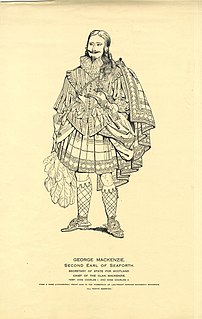 W
WGeorge Mackenzie, 2nd Earl of Seaforth was a Highland clan chief and Scottish nobleman, who played an equivocating role in Scotland in the Wars of the Three Kingdoms.
 W
WField Marshal John Dalrymple, 2nd Earl of Stair was a Scottish soldier and diplomat. He served in the Nine Years' War and the War of the Spanish Succession and, after a period as British Ambassador in Paris, became a military commander at the Battle of Dettingen during the War of the Austrian Succession.
 W
WSir Thomas Livingstone, Viscount Teviot was an military officer of Scottish descent who was born in the Dutch Republic, and spent his career in the service of William of Orange.
 W
WSir James Turner (1615-c.1686) was a Scottish professional soldier of the 17th century.
 W
WSir William Wallace was a Scottish knight who became one of the main leaders during the First War of Scottish Independence.
 W
WMajor-General Douglas Neil Wimberley, was a British Army officer who, during the Second World War, commanded the 51st (Highland) Division for two years, from 1941 to 1943, notably at the Second Battle of El Alamein, before leading it across North Africa and in the Allied campaign in Sicily.